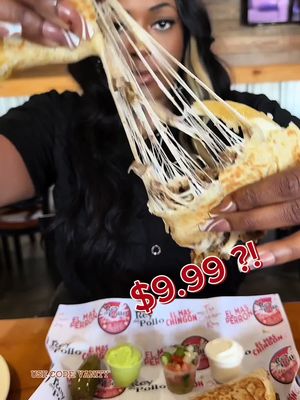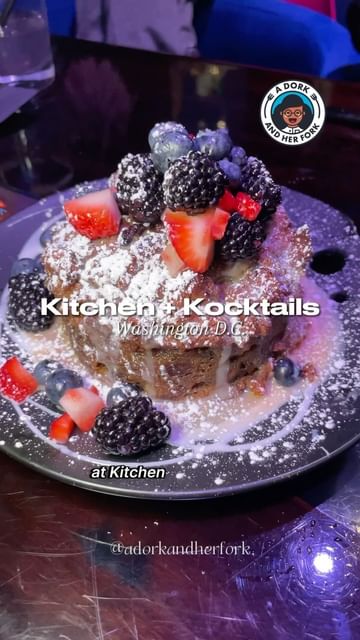Food influencer marketing has transformed the way people discover and choose where to eat. From mouthwatering Reels to viral TikTok reviews, food creators hold massive sway over what we crave—and where we go to satisfy it. 🍜
But why do we trust these influencers so much?
In this article, we’ll explore the psychology behind food influencer trust—and how restaurants can tap into it to boost business, build loyalty, and attract new customers.
🤝 1. Parasocial Relationships: When Followers Feel Like Friends
A parasocial relationship is a one-sided bond that a viewer or follower develops with someone they see online. Over time, people feel like they "know" the influencer—even if they've never met in real life.
📱 What this means:
- Followers trust influencers like they trust real-life friends
- Food recommendations feel personal
- The influencer’s opinion carries emotional weight
Studies show that parasocial connections increase perceived authenticity, making influencer recommendations more powerful than traditional ads.
👀 2. Social Proof: Everyone Else is Eating There
One of the most powerful psychological triggers is social proof. When a food influencer’s post gets thousands of likes or their video shows a packed restaurant, it signals:
✔️ This place is popular
✔️ Other people trust it
✔️ I should check it out too
That sense of "everyone's going" is a huge driver for restaurant discovery.
🔁 Influencer campaigns on Mustard that go viral with local creators regularly see 2–4x spikes in foot traffic within a week.
📣 3. Authenticity and Transparency Build Trust
People don’t just want perfect—they want real. Influencers who show both the good and the “meh” moments earn more trust from their audiences.
✨ Traits that increase trust:
- Honest opinions about the food
- Disclosure of sponsorships
- Showing genuine reactions (not just pretty shots)
Authentic content feels more human—and that’s what makes it convincing.
🎓 4. Perceived Expertise = Instant Credibility
The more experience or food knowledge an influencer shares, the more credible they seem.
People trust food creators who:
- Visit many restaurants
- Know culinary trends
- Offer clear, helpful feedback
- Understand ingredients or dietary niches (vegan, gluten-free, etc.)
Think of them as your foodie friend with really good taste.
📸 5. Visual Psychology: Cravings Start with the Eyes
Humans are visual creatures. A well-framed food photo or slow-mo video can actually trigger dopamine, the brain's reward chemical.
Why this matters:
- People associate your brand with pleasure
- They remember your dish or vibe from the content
- They screenshot or save it for later visits
Instagram and TikTok content that highlights textures (melty cheese, crispy wings, creamy desserts) consistently outperforms static, posed shots.
🔁 6. Repetition Builds Familiarity (and Trust)
When someone sees a restaurant pop up again and again in their feed, trust builds naturally.
It’s the “mere exposure effect”—a psychological principle that says we prefer what we’re familiar with.
✅ Restaurants that show up in multiple influencer posts over a few weeks often see:
- Higher brand recall
- More social shares
- Increased direct searches and bookings
This is why influencer campaigns work better when done consistently—not just once.
💬 7. Engagement Makes It Personal
Influencers who reply to comments, answer questions, and engage with their audience create stronger trust.
Why it matters:
- Followers feel heard
- Conversations drive excitement about your restaurant
- The influencer becomes a trusted guide, not just a megaphone
Restaurants benefit from this relationship—it’s like word-of-mouth at scale.
📖 8. Storytelling Activates Emotional Buying
When a food creator tells a story—whether it’s about their experience at your restaurant, the culture behind the dish, or a funny moment while filming—it taps into emotion.
🧠 Emotion drives memory and action.
That’s why posts like:
- “I had my birthday here and it was unforgettable...”
- “This reminded me of my grandma’s cooking…”
- “My first time trying ramen, and here’s what happened…”
...perform so well.
🌱 9. Relatability: “They Eat Like Me”
People trust people who feel like them. Nano and micro influencers succeed because they’re not celebrities—they’re real people.
Relatability builds trust through:
- Similar lifestyles (students, parents, vegans, etc.)
- Authentic content (no fancy lighting or huge teams)
- Shared values (supporting local, sustainable, culturally authentic spots)
Micro and nano influencers have 3x–5x higher engagement than celebs because they feel more “real.”
🙋 10. Influencer Trust Is Peer Influence at Scale
Food influencer trust is a modern version of an age-old principle: peer recommendation.
We’ve always asked our friends where to eat. Influencers just scaled that up—with content, reach, and personality.
📈 92% of consumers trust influencer recommendations over ads, especially when it comes to restaurants.
🔍 Why This Psychology Matters for Restaurants
If you're trying to increase bookings, boost foot traffic, or get more online orders, understanding why people trust food influencers helps you market smarter.
✨ When you activate local influencers with real relationships, you’re not just buying exposure—you’re earning trust.
Restaurants using Mustard see:
- More UGC (user-generated content)
- More customers asking “I saw you on TikTok!”
- Better conversion from viewers to visitors
🧠 Real Example: From Feed to Full Tables
A sushi restaurant in San Diego worked with 6 micro food influencers over 3 weeks.
What they focused on:
- Storytelling: “This omakase chef used to work in Tokyo...”
- Visuals: Slow-motion salmon torching
- Engagement: Creators answered “Where is this?” in the comments
🚀 Results:
- 200K+ views across content
- 2,300 new Instagram followers
- Booked out for 2 weekends straight
Trust drove the traffic.
✅ How Mustard Helps Restaurants Leverage Influencer Psychology
At Mustard, we understand the psychology of food marketing—because we’ve run hundreds of campaigns that tap into it.
We help restaurants:
- Find the right creators in their city (who already have trust)
- Create briefs and prompts that spark authentic stories
- Manage posting timelines, rights, and performance
- Reuse content across ads, emails, and social media
👉 Start your first campaign with Mustard
💬 Final Takeaway: Trust is the Secret Sauce
In 2025, food marketing isn’t about shouting louder. It’s about earning trust—and food influencers are experts at doing just that.
Why people trust them:✅ They’re relatable
✅ They tell stories
✅ They feel like friends
✅ Their content looks amazing
✅ Their followers actually listen
Restaurants that tap into this psychology grow faster, build stronger loyalty, and stay top of mind—without spending like a big chain.
✨ Want help turning trust into traffic?
👉 Let Mustard connect your brand with the food creators your city already loves.



.jpg)





